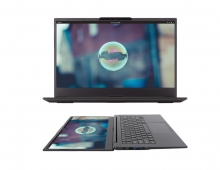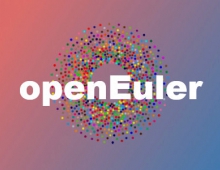
IBM, Sony, Philips Form Linux Alliance
IBM, Sony and Philips have joined forces with the two largest Linux software distributors to create a company for sharing Linux patents, royalty-free.
The Open Invention Network (OIN), as the new firm unveiled Thursday is known, could mark a breakthrough in resolving how to protect vendors and customers from patent royalty disputes resulting from freely shared Linux code.
If OIN's approach to managing intellectual property wins acceptance, it could overcome a big stumbling block to wider corporate adoption of Linux and pose challenges for major opponent Microsoft, which has argued that relying on "open source" software poses legal risks.
OIN is funded by the world's largest computer company, IBM, two consumer electronics giants -- Sony of Japan and Philips of the Netherlands -- and Linux distributors Red Hat and Novell.
"Open collaboration is critical for driving innovation, which fuels global economic growth. Impediments to collaboration on the Linux operating system seriously jeopardize innovation. A new model of intellectual property management for Linux must be established to maintain advances in software innovation - regardless of the size or type of business or organization," said Jerry Rosenthal, chief executive officer at Open Invention Network. The company will foster an open, collaborative environment that stimulates advances in Linux - helping ensure the continuation of global innovation that has benefited software vendors, customers, emerging markets and investors, among others.
Patents owned by Open Invention Network will be available on a royalty-free basis to any company, institution or individual that agrees not to assert its patents against the Linux operating system or certain Linux-related applications.
"This is the green light that a lot of companies have been waiting for," Doherty said. "Unless your name was Novell or Red Hat, you couldn't be sure you had clear legal title to Linux."
Initial OIN patent holdings include a set of electronic commerce patents that were purchased from business-to-business (B2B) software pioneer Commerce One by JGR, a unit of Novell.
Traditionally, patents have been pursued for two primary reasons -- to defend one's own intellectual property or for barter to trade in cross-licensing agreements to gain access to other companies' patents. OIN represents a new form of cross-licensing that its backers say could spur innovation.
"A lot of lawyers are going to throw their hands up and ask, 'How do we make money from this?"' Doherty said. "The answer is: 'Maybe they don't."'
The company, which will be based in Westchester County, where International Business Machines Corp. is headquartered, offers a new model for managing intellectual property in which patents are openly shared to aid the advancement of Linux.
"If a company decides that they had a need for a license we would be willing to license them ....(but) only in return for them agreeing not to go against Linux," said Jerry Rosenthal, a former IBM vice president of intellectual property, who retired in April, and is now Open Invention Network's chief executive.
Rosenthal said in a phone interview that he had a pool of funding that was all he needed to go out and acquire the patent portfolio to defend core Linux software and applications. "I am very comfortable that I have sufficient funding to do what I need to do for the foreseeable future."
"This is really about Linux and the opportunity to expand the Linux economy," he said. "We are seeking no royalties."
If OIN's approach to managing intellectual property wins acceptance, it could overcome a big stumbling block to wider corporate adoption of Linux and pose challenges for major opponent Microsoft, which has argued that relying on "open source" software poses legal risks.
OIN is funded by the world's largest computer company, IBM, two consumer electronics giants -- Sony of Japan and Philips of the Netherlands -- and Linux distributors Red Hat and Novell.
"Open collaboration is critical for driving innovation, which fuels global economic growth. Impediments to collaboration on the Linux operating system seriously jeopardize innovation. A new model of intellectual property management for Linux must be established to maintain advances in software innovation - regardless of the size or type of business or organization," said Jerry Rosenthal, chief executive officer at Open Invention Network. The company will foster an open, collaborative environment that stimulates advances in Linux - helping ensure the continuation of global innovation that has benefited software vendors, customers, emerging markets and investors, among others.
Patents owned by Open Invention Network will be available on a royalty-free basis to any company, institution or individual that agrees not to assert its patents against the Linux operating system or certain Linux-related applications.
"This is the green light that a lot of companies have been waiting for," Doherty said. "Unless your name was Novell or Red Hat, you couldn't be sure you had clear legal title to Linux."
Initial OIN patent holdings include a set of electronic commerce patents that were purchased from business-to-business (B2B) software pioneer Commerce One by JGR, a unit of Novell.
Traditionally, patents have been pursued for two primary reasons -- to defend one's own intellectual property or for barter to trade in cross-licensing agreements to gain access to other companies' patents. OIN represents a new form of cross-licensing that its backers say could spur innovation.
"A lot of lawyers are going to throw their hands up and ask, 'How do we make money from this?"' Doherty said. "The answer is: 'Maybe they don't."'
The company, which will be based in Westchester County, where International Business Machines Corp. is headquartered, offers a new model for managing intellectual property in which patents are openly shared to aid the advancement of Linux.
"If a company decides that they had a need for a license we would be willing to license them ....(but) only in return for them agreeing not to go against Linux," said Jerry Rosenthal, a former IBM vice president of intellectual property, who retired in April, and is now Open Invention Network's chief executive.
Rosenthal said in a phone interview that he had a pool of funding that was all he needed to go out and acquire the patent portfolio to defend core Linux software and applications. "I am very comfortable that I have sufficient funding to do what I need to do for the foreseeable future."
"This is really about Linux and the opportunity to expand the Linux economy," he said. "We are seeking no royalties."





















